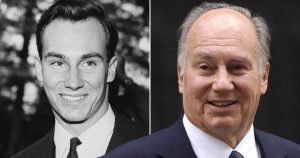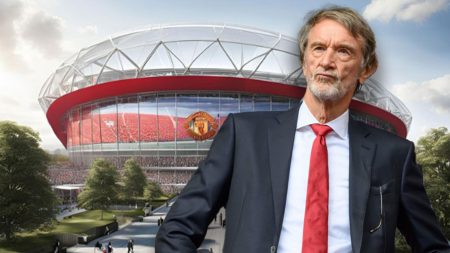Tom Johnstone, the dynamic winger, has returned to his rugby roots at Wakefield Trinity, driven by a renewed vision for the club and a desire to recapture past glories. Leaving behind the allure of the NRL and the comforts of Catalans Dragons, Johnstone’s decision stems from a palpable shift within Wakefield, a transformation that has convinced him of the club’s genuine commitment to a brighter future. He marks this new era as “Wakefield 2.0,” a period of revitalization that promises a return to the competitive heights the club once occupied. The changes, he insists, are not merely cosmetic but represent a fundamental shift in mindset, infrastructure, and planning, echoing a professional approach that resonates deeply with the seasoned winger.
This “Wakefield 2.0” is a far cry from the club Johnstone left behind. The previous era was marked by uncertainty and broken promises, with grand plans for new facilities and improved infrastructure often failing to materialize. He recalls the almost comical nature of past pledges, noting how talk of upgrades had become a source of amusement rather than anticipation. The contrast with the current regime is stark. The new ownership, spearheaded by Matt Ellis, has ushered in an era of tangible progress, evidenced by the new stand, upgraded recovery room, and state-of-the-art gym equipment. This commitment to investment extends beyond bricks and mortar, encompassing a meticulous approach to planning and organization that instills confidence and allows players to focus on their performance.
The improved infrastructure is matched by a renewed ambition, a desire to move beyond mere survival and reclaim Wakefield’s position among the Super League elite. Johnstone emphasizes the shift from overachieving, as they did in their surprising fifth-place finish in 2018, to aiming for consistent high performance, a culture built on expectation and a belief in their potential. This ambition reflects the club’s desire to recapture the “juggernaut” status of its glory days, a period when Wakefield Trinity was a force to be reckoned with. This vision resonates strongly with Johnstone, fueling his belief in the club’s potential and solidifying his decision to return.
Johnstone’s return is not simply a homecoming; it marks a personal transformation as well. His time in France with Catalans Dragons proved to be a valuable period of growth, both on and off the field. He honed his skills, learned the importance of self-care, and matured as a player. However, the experience also highlighted the importance of family and the deep-rooted connection he felt to his home environment. Being closer to his loved ones has brought a newfound sense of happiness and stability, a crucial element that contributes to his positive outlook and on-field performance. He recognizes that a settled and fulfilling life away from the pitch translates directly into a more focused and effective presence on it.
The newfound stability at Wakefield extends beyond the personal. Johnstone highlights the professionalism and meticulous planning that now characterizes the club’s operations. He contrasts this with the uncertainty of the past, where players were often left in the dark about training schedules and future plans, creating unnecessary stress and hindering their ability to balance their personal lives with the demands of professional rugby. The current structure, with detailed pre-season plans and clear communication, provides players with the predictability and control they need to manage their lives effectively. This meticulous approach not only benefits the players but also creates a more harmonious and supportive environment, eliminating the anxieties and frustrations that can arise from uncertainty and poor planning.
In essence, Johnstone’s return to Wakefield Trinity represents a convergence of factors: the club’s tangible transformation, his personal growth and desire for family proximity, and a shared ambition to restore Wakefield to its former glory. He views the club as a fundamentally different entity, one characterized by professionalism, investment, and a clear vision for success. His decision to return was not taken lightly, initially meeting the club’s interest with skepticism born from past disappointments. However, the evidence of real change, coupled with the opportunity to contribute to a meaningful project close to home, proved irresistible. Johnstone is not just returning to a club; he is investing in a vision, a vision he believes in and one he is determined to help realize. He is a different player returning to a different club, both striving for a shared goal: to make Wakefield Trinity a force to be reckoned with once more.











